Physiology Friday #223: Can a Healthy Lifestyle Increase Your Chances of Living to 100?
Centenarians are the real longevity experts.
Greetings!
Welcome to the Physiology Friday newsletter.
Details about the sponsors of this newsletter including Examine.com and my book “VO2 Max Essentials” can be found at the end of the post!
When the world’s oldest-lived person dies, we inevitably see headlines about their “secret” to living long. It’s rarely a dedicated exercise routine, intricate supplement stack, or rigorous morning routine.
In most cases, they’re known to have been a former or lifelong smoker, indulge in a daily stiff drink, and have some obscure daily treat that they enjoy. They also often cite social relationships and gardening as keys to their longevity.
This can be a bit depressing. Is longevity ALL in our genetics? Are some people destined to live to be 100 years or older in spite of their lifestyle habits?
In some ways yes. There’s certainly a genetic aspect to longevity, and I don’t think someone with a hardwired maximal lifespan of say, 85, will live to be 115 by using lifestyle hacks.
But we shouldn’t discount the profound impact that a healthy lifestyle can have on healthspan and lifespan. Each of us can increase not only the length of our life, but also the length of our healthy years lived, through exercise, a healthy diet, moderating stress, and other healthy habits. How much we can extend lifespan and healthspan is another question entirely.
Some of the so-called longevity experts will have you believe human lifespan can be extended to 120, or even 150 years in our lifetime. I’m not so optimistic. Most of these experts (but not all) have good advice on how to live well.
What might be even better than listening to longevity influencers? Taking advice from actually long-lived people — those who have lived well into their 90s and even their 100s. Can we learn the secrets to healthy living and a long life from the world’s longest-lived people?
That’s what a recent publication from the Chinese Longitudinal Healthy Longevity Survey (CLHLS) attempted to do.1
The CLHLS is an ongoing study of 22 of the 31 mainland Chinese provinces — about 85% of the entire population. The participants were surveyed at least once between 1998 and 2018 and followed up thereafter.
For the current study, a total of more than 17,000 participants were initially included, all of whom were aged 80 or older. These participants were recruited between 1998 and 2008, meaning that they had the potential to reach age 100 by the end of the follow-up period (in 2018).
From this cohort, two groups were created: participants who reached centenarian status (lived to 100 or more) and those who didn’t. In total, the cohort comprised 5,222 adults: 1,454 centenarians and 3,768 non-centenarians.
A healthy lifestyle score was constructed for each participants (on a scale of 0–10) using 5 lifestyle components: smoking, alcohol use, exercise habits, dietary diversity, and body mass index. This lifestyle score was then used to determine the association between healthy lifestyle behaviros and the odds of living to 100, after adjusting for potentially counfinding variables like age, sex, residence, educational attainment, martial status, and the presence of chronic health conditions.
Results
A higher healthy living score was associated with greater odds of being a centenarian — having a score of 8–10 increased these odds by 33% compared to having a score of 0–5.
Among the 5 lifestyle factors, not smoking, exercise, and dietary diversity (but not BMI or alcohol use) were associated with being a centenarian.
Never smoking: 25% greater chance of being a centenarian vs. current smokers
Exercise: 31% greater chance of becoming a centenarian vs. never exercisers
Dietary diversity: 23% greater chance of becoming a centenarian for the highest vs. the lowest
A new healthy lifestyle score was calculated using these 3 factors. Having a higher lifestyle score was associated with an even greater 66% chance of becoming a centenarian.
A promising finding from this study is that even among very long-lived people — those exceeding the average life expectancy — healthy lifestyle habits seem to make a difference. Regular exercise, a diverse diet, and avoiding smoking might move the needle enough to push you over the edge to 100 years old (just make it to 80 first!).
When you’re old, lifestyle still matters!
It’s actually a pretty well-known occurrence that people who live to be 90 years old are generally without serious health conditions — those with health conditions tend to die much sooner. My grandmother, for example, is 94 years old, and despite poor hearing and mobility issues, is as healthy as a horse (this despite living off of Diet Coke and fudgesicles).
Now, what this study doesn’t answer is whether healthy lifestyle habits can help us make it to age 80 and beyond. What’s the role of early-life behaviors in longevity?
It’s interesting that alcohol and BMI didn’t show an association with longevity. This lends some support to the idea that light to moderate drinking may promote longevity (highly debated) or at least that abstaining from alcohol doesn’t seem to promote it.
Regarding BMI, some studies suggest a higher BMI is actually protective in old age — providing more strength and durability against falls and injury. A low BMI may signal sarcopenia or low muscle mass. I think the role of a healthy body composition is more prominent early in life to prevent the early onset of metabolic diseases.
I’d have loved to see detailed information about diet composition and types and intensities of exercise, but that wasn’t possible in this survey-based study. But I’m sure the participants were diligent about their zone 2 training. :)
Let’s take comfort in knowing that being a centenarian isn’t ALL just luck. If science advances quickly enough, perhaps all of us can reach the ripe age of 100. If not, the most we can do is leverage healthy lifestyle habits to increase our chances to live long and prosper.
Thanks for reading. See you next Friday.
~Brady~
The VO2 Max Essentials eBook is your comprehensive guide to aerobic fitness, how to improve it, and its importance for health, performance, and longevity. Get your copy today and use code SUBSTACK20 at checkout for a 20% discount. You can also grab the Kindle eBook, paperback, or hardcover version on Amazon.
Examine.com: Examine is the largest database of nutrition and supplement information on the internet.
Li Y, Wang K, Jigeer G, et al. Healthy Lifestyle and the Likelihood of Becoming a Centenarian. JAMA Netw Open. 2024;7(6):e2417931. doi:10.1001/jamanetworkopen.2024.17931

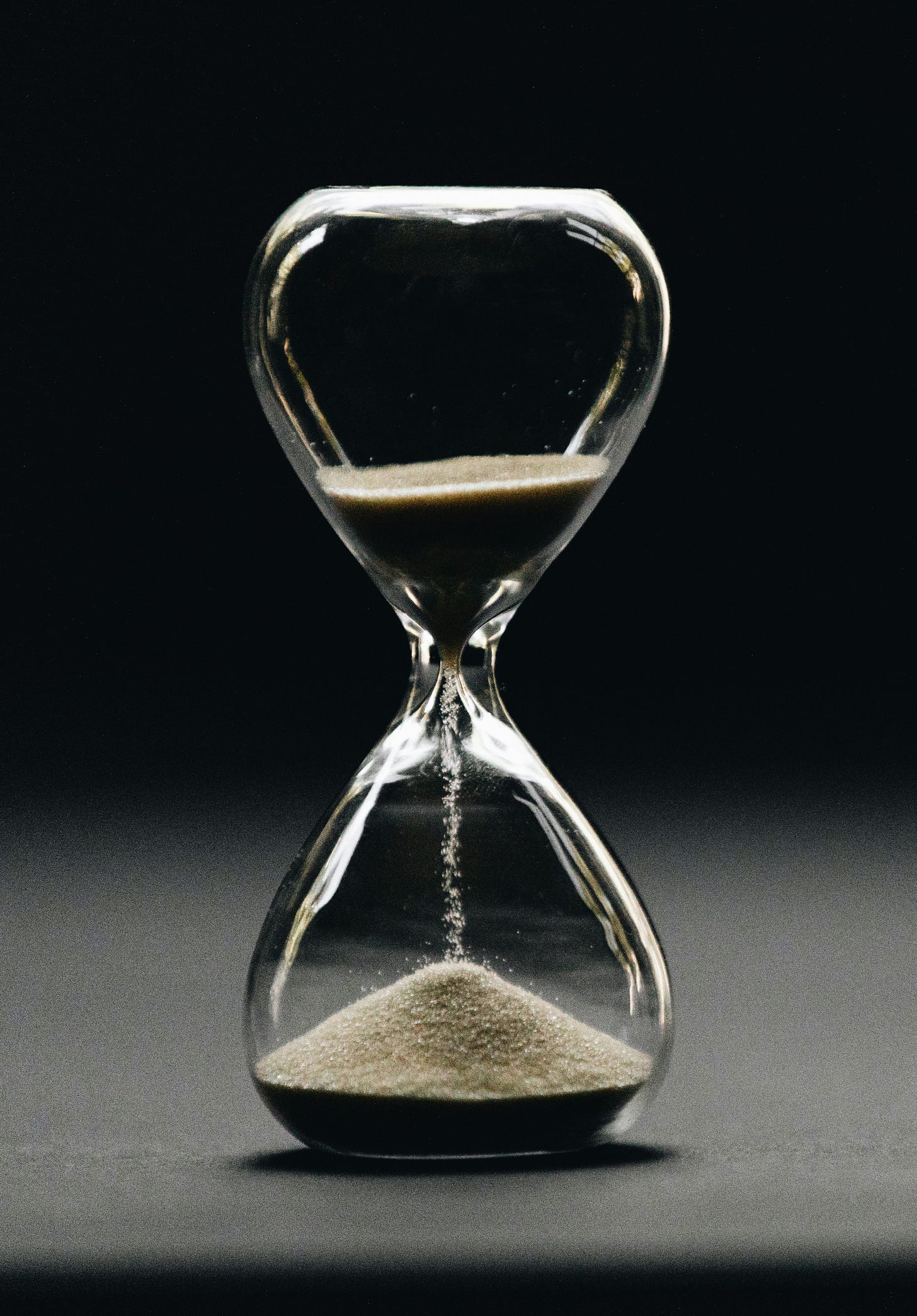
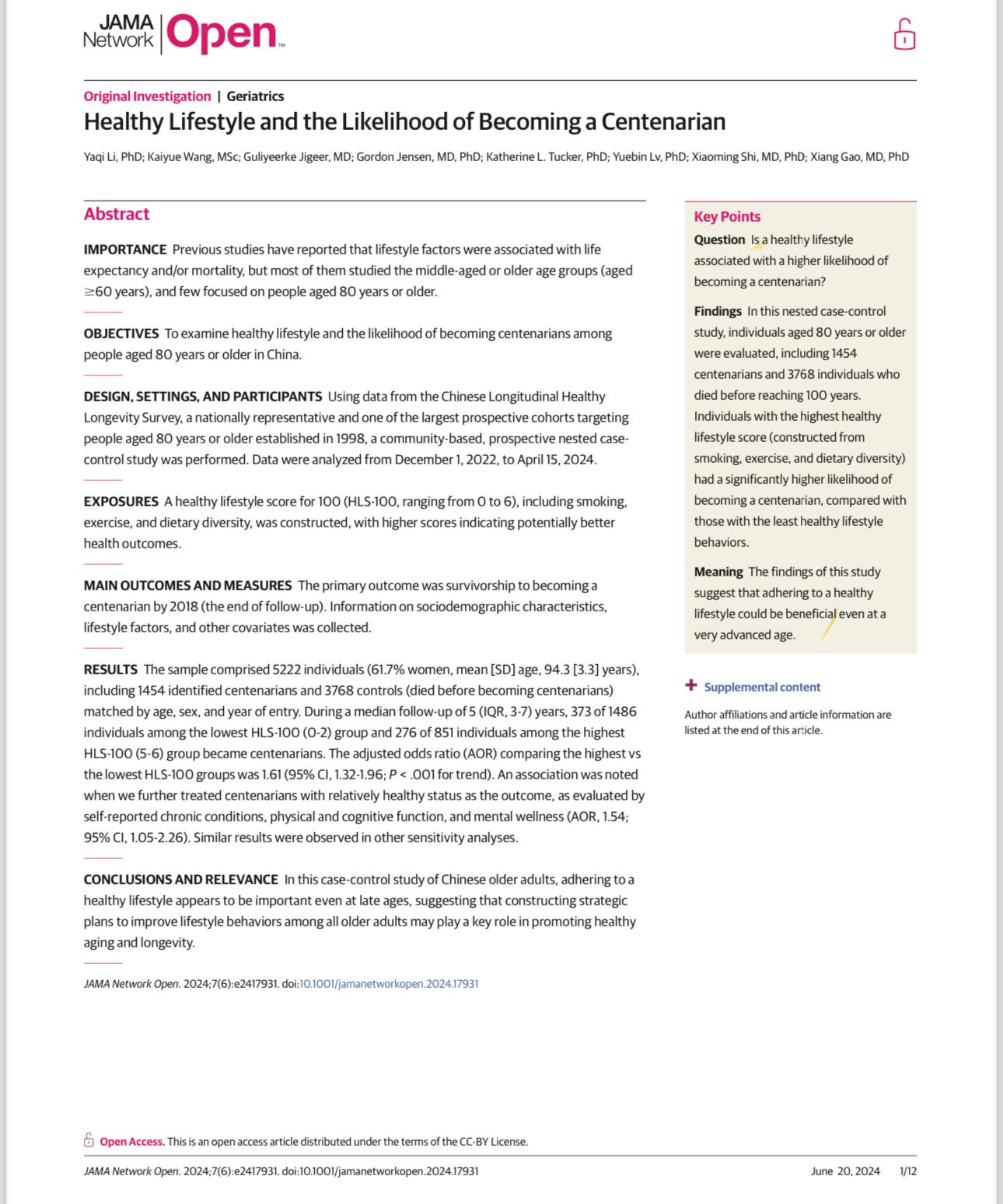
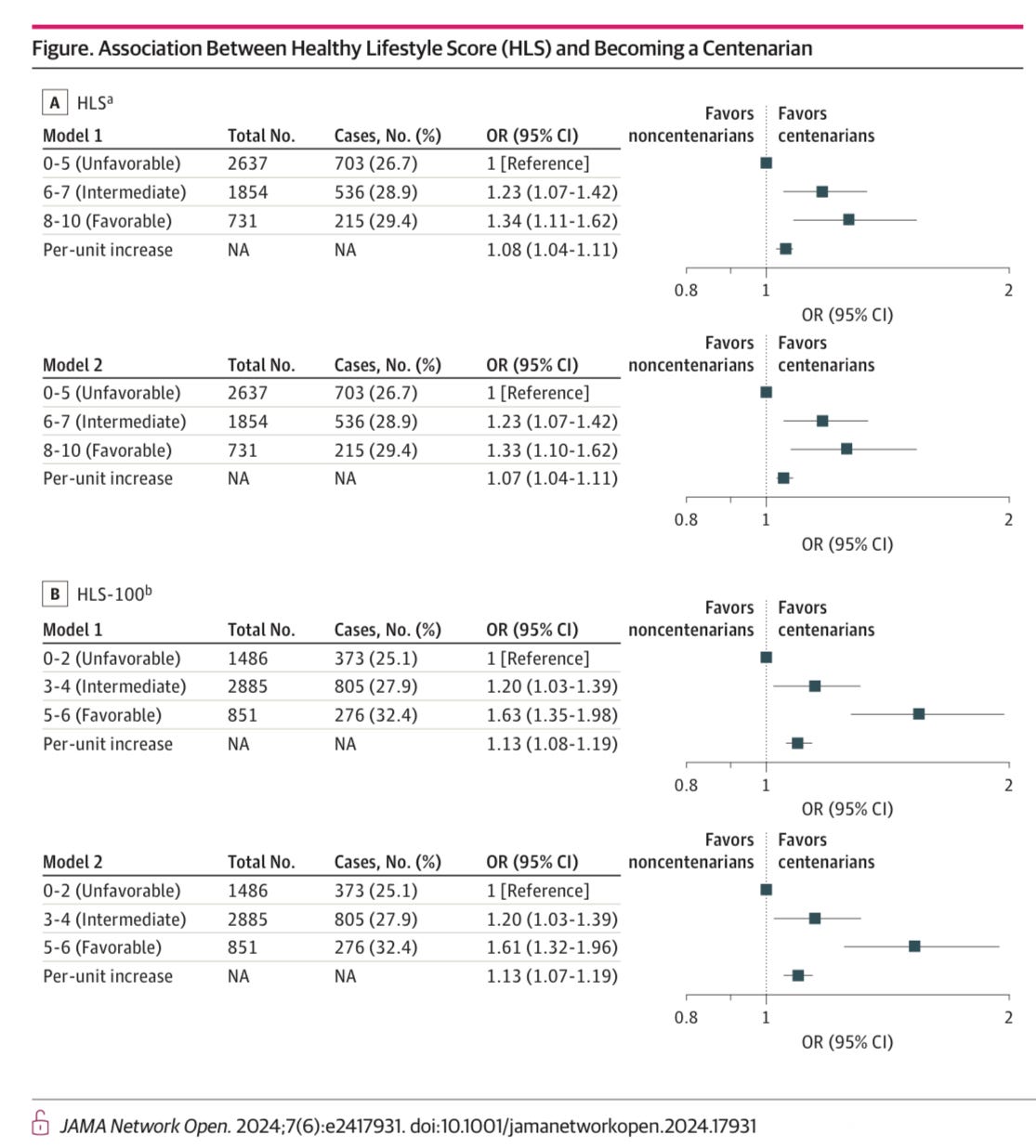
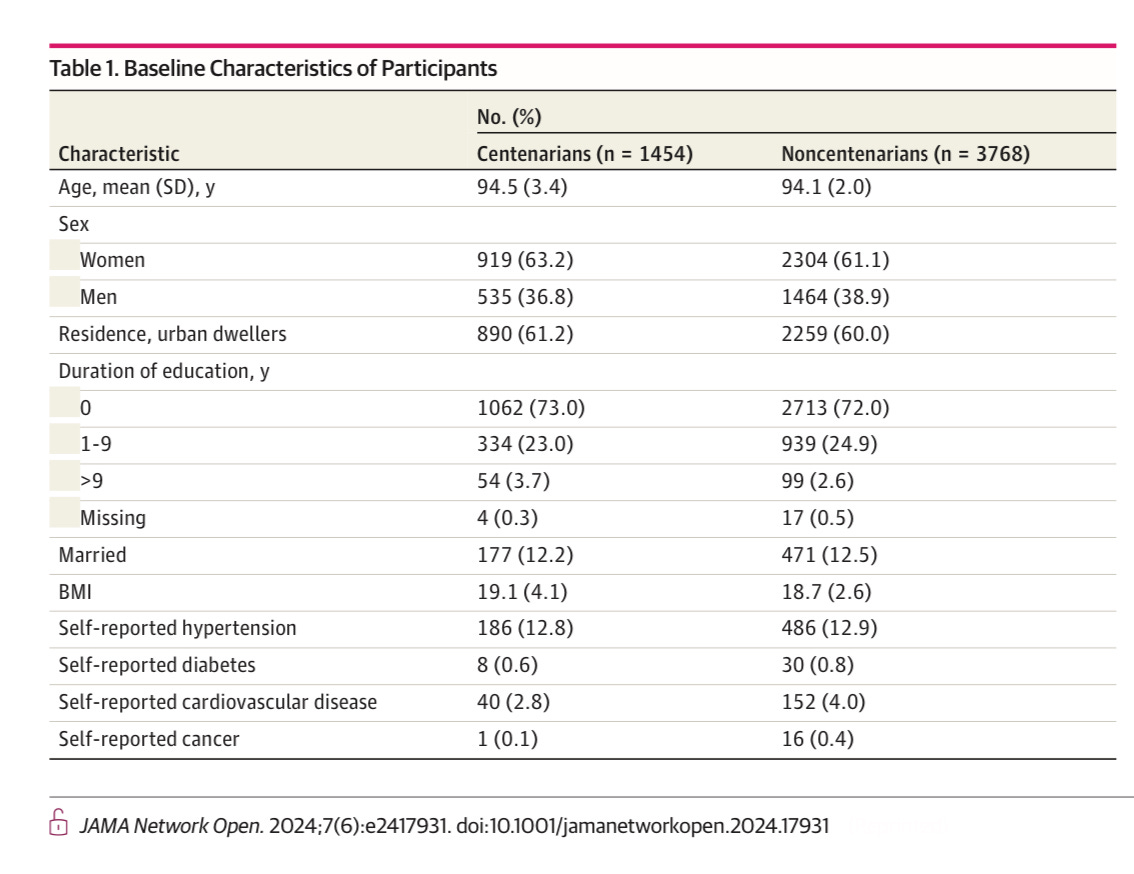
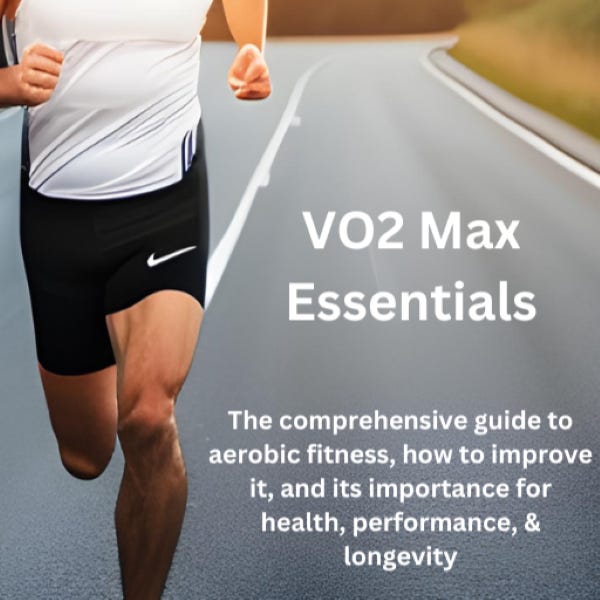

What I want to see next out of these longevity studies is psychological stress effects on a long and healthy life.
As a higher BMI person who exercises 5-7 days a week consistently, this is hopeful. I also wonder how they define dietary diversity. And what exercise means for someone over 80 or 90. Chair yoga? Walks? Hiking? Maybe gardening haha.